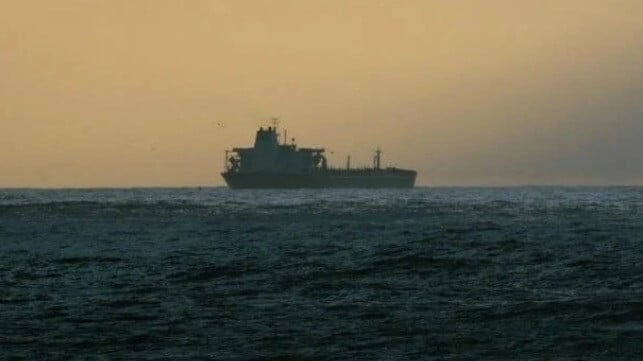Denmark Targets Shadow Tankers in New Port State Inspection Program

The Danish Maritime Authority announced that it will begin taking steps to strengthen the supervision and monitoring of tankers anchoring in its waterways. It is part of an effort that they said will ensure compliance with the rules for safety at sea, environmental protection, and protection of seafarers.
Denmark has long worried about the potential impact from the movement of often uninsured shadow tankers through its waters while transporting Russian oil. While there has not been a disastrous incident, in March 2024, the shadow tanker Andromeda Star (115,600 dwt registered in Panama) was involved in a small accident off Denmark. Reports at the time said the vessel presented false papers to the authorities.
The announcement for the new Port State inspection program said the effort is being made in response to the activity of older ships transporting oil through the Danish straits, which poses an increased risk and concern for the environment. It said it would be carrying out port state control inspections on ships that “cannot be said to be in harmless passage and that anchor at Skagen Red.”
“The effort is in line with the Danish Maritime Authority's targeted work to promote international quality shipping,” writes the maritime authority.
Officials have in the past expressed concern about the refusal by many of the tankers to use pilots while transiting the waterways. Denmark advocated for the European Union to authorize wider inspection regimes while there were reports that other countries such as the United Kingdom were frequently finding a lack of insurance or other proper paperwork when they challenged tankers transiting their waterways.
Two months ago, Denmark agreed with other European countries to introduce its own system of checks on insurance and the documentation of vessels transiting its waterways.
Denmark now says its focus on tankers follows from existing selection methods of ships for port state control and that tankers have a particularly high-risk profile. They noted that an accident involving damage or sinking of tankers could have particularly far-reaching consequences. As such, the authority says it determined tankers would be prioritized for inspection to a higher degree than other types of ships.

that matters most
Get the latest maritime news delivered to your inbox daily.
The new policy follows a series of recent incidents in the Baltic and North Sea that further raised concerns. Finland continues to detain a shadow tanker that it accuses of damaging undersea cables on December 25 and last week Latvia petitioned Norway to detain another vessel that it suspected was involved in a sabotage incident. Norway released the vessel after an investigation while at the beginning of this week, Sweden also released a bulker that it detained but found that it accidentally damaged undersea cables.
NATO and Baltic countries including Sweden, Norway, Finland, and Estonia have each announced plans to increase patrols near critical undersea infrastructure. The UK working with Baltic countries also launched a new tracking program to identify suspicious actions by vessels in the North Sea.
